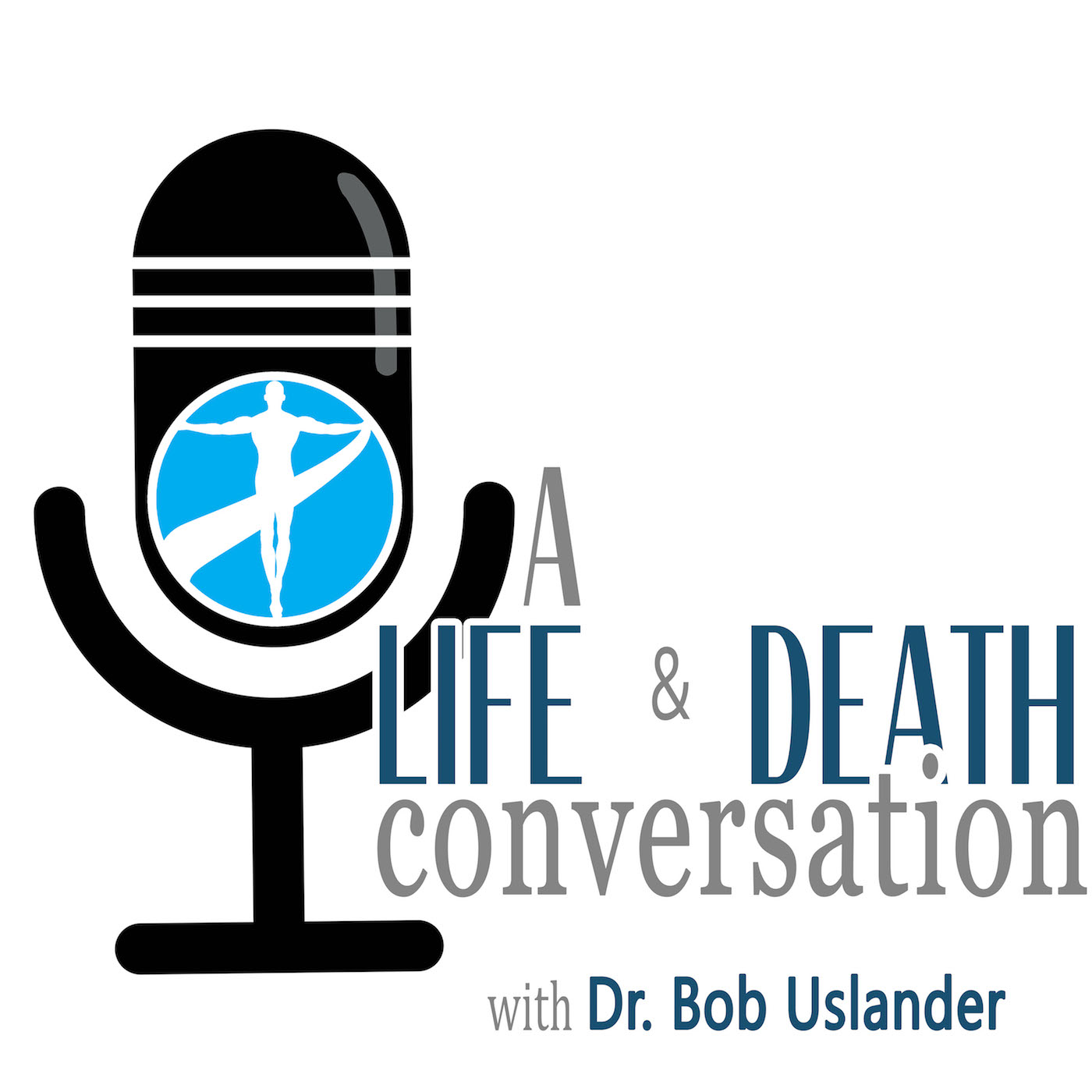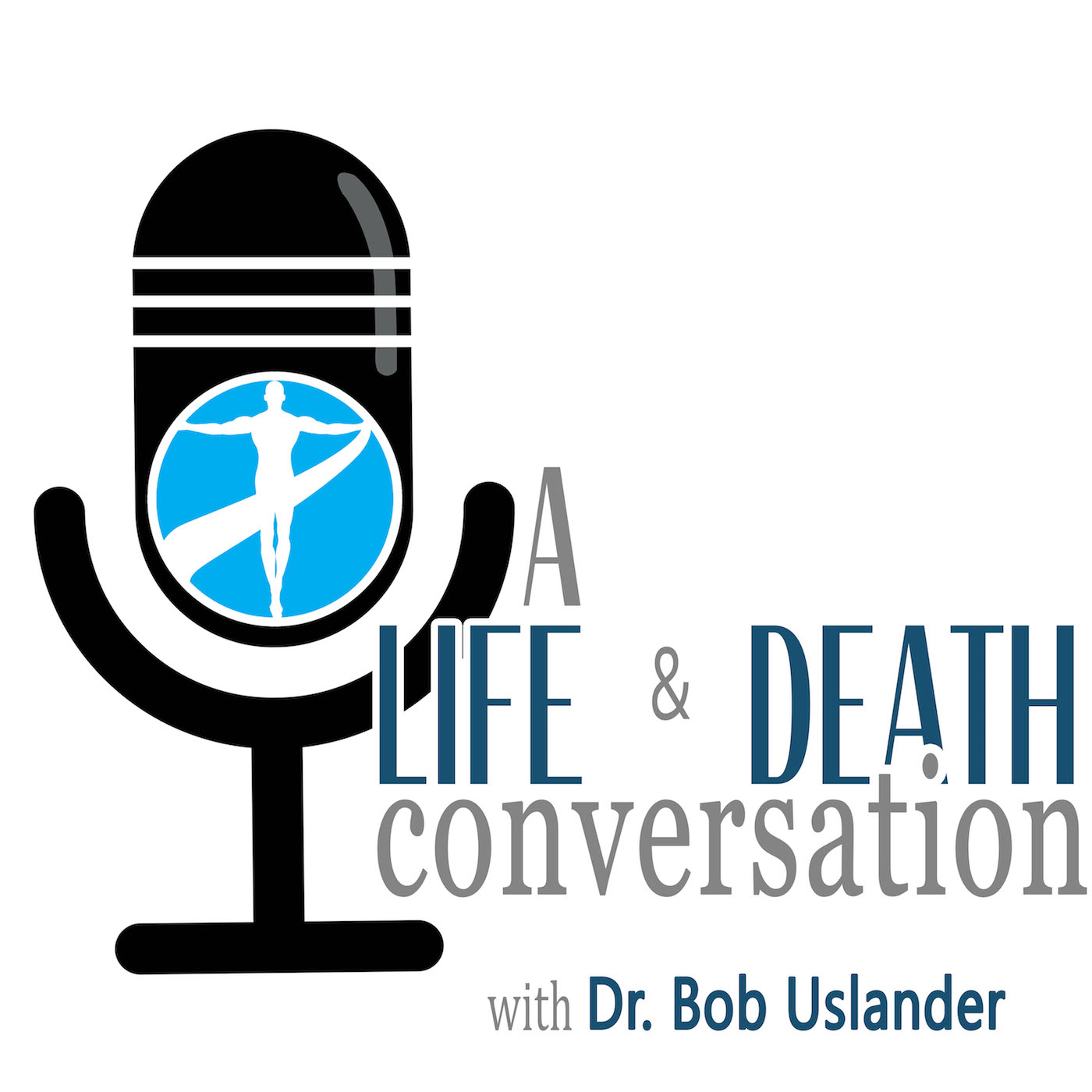A Nurse's Personal Story About End-Of-Life, Jillian Alexander Ep. 4
Description
Dr. Bob: The person I'm going to introduce you to today and have a conversation with is a woman who I haven't known very long but in the short time that we have known each other we've become very close friends and co-creators on this journey around exploring how to make the best out of life and helping to support people through complex illnesses and approaching the end of life.
Her name is Jillian Alexander and I'm just going to tell you a little bit about Jillian and then I'm going to turn it over and let Jillian tell you more about herself. I think it'll be a fascinating discussion. Jillian has an amount of experience both from a professional standpoint and from a personal standpoint. We've had many conversations and I'm excited to introduce her to you. Before I go on and talk a little bit more about you, Jillian, why don't you just say hello?
Jillian: Hello Dr. Bob, nice to talk to you.
Dr. Bob: It's wonderful. Thank you so much for taking time to be with me. Jillian is a nurse, she's a registered nurse and has been for 35 years though if you look at her you would think that she actually finished nursing school when she was eight, so it's hard to believe that. She's been a registered nurse and has worked in both pediatric intensive care units and neonatal intensive care units, so a lot of her clinical work has been in the pediatric setting.
In 2012, she completed a Master's of Science in nursing and she specialized in education. Now, she's doing a lot of educating of other nurses in obstetrics and pediatrics. Her personal experience with supporting people has been like many of us in the healthcare profession, we take care of anybody who asks us to and especially family members. Eight years ago Jillian's sister, Lauren, her younger sister was diagnosed with ovarian cancer and at that point Jillian took a leave from her job and spent three months with her sister when she underwent surgery with a port placed in her abdominal cavity so that they could administer chemotherapy directly into the area where the cancer was.
She went to all of her sister's treatments and after that, her sister actually did really well, Lauren did well and had five years during which time she was in remission. But in 2014 the ovarian cancer returned and they started together as a family looking at treatment options, doing a lot of research, looking into clinical trials, traveling. Lauren was blessed to have fairly extensive resources available to her so she was really able to find the best care that was available at the time. Despite that, the cancer continued to spread and in 2016 it became apparent that the treatments were not effective, she was getting extremely weak, and having issues with bowel obstructions. That’s about the time that I was brought into the picture, so this was late in 2016.
Jillian continued to live in the San Diego area, taking an extensive leave from her career, from the family that she had out there, and was an amazing advocate for her sister, to try to give her the best possible quality of life and support during what she knew to be the final phase of Lauren's life. Lauren passed away, I believe it was in January 2017, is that correct?
Jillian: Correct.
Dr. Bob: It was truly an incredible experience to be a) working that closely with Lauren and support her, but I was completely blown away and amazed by the level of commitment that Jillian showed by her sensitivity. We created something almost like a little hospital/hospice setting and we were able to give Lauren a very beautiful and very supportive environment for the final weeks, months of her life.
Since that time Jillian’s her life has taken a completely different turn and I'm going to turn it over now and I'm going to allow Jillian to talk a little bit about what that experience was like and what's happened in her life since then. Jillian, a) thank you for being my friend, b) thank you for what you bring to people, and c) let's hear what's been happening for you.
Jillian: Thank you, Dr. Bob. That was really sweet. The first thing I really want to say is that, even though I had been a nurse for 35 years, I really didn't know what to do to help my sister. She was so ill, she had a couple of extensive stays in the hospital where they would do another CAT scan and ended up putting a port into her lungs because they had to drain fluid from her lungs every day so she could breathe. I was really struggling to find her palliative care. I didn't really know exactly what it was and my sister was a real fighter. She didn't want to hear and she would say, "I hope they don't give me my hospice card this time." The “H” word was a bad word and so I didn't know what to do because outside of hospice how do I find someone to help me?
I started searching and I had a friend, who happens to be a palliative care physician, who said, "They have to have palliative care, ask them." I started asking her oncologist to get me palliative care and they set me up for an appointment. But it was three weeks away and my sister was so sick, and I didn't know what to do to help her because she couldn't be at home in her condition without, like Bob said, a hospital type room in her home. I wanted her to be at home and she wanted to be at home. When they gave me Dr. Bob's phone number and I had the first conversation with him, I knew right away I had found the right person.
I can't explain how desperate I was and how many dead ends I was facing when I tried to advocate for my sister even something as simple as helping control her pain. Because she had a bowel obstruction, she couldn't take medicine by mouth, and I knew that a fentanyl patch would help her, but the oncologist said she had to be in hospice to get a fentanyl patch. I said, "Well, why?" I couldn't get her the help. When I finally met Dr. Bob, within 24 hours we had her at home, on a fentanyl patch, with IV medication to control her pain when that didn't work, and everything we needed to keep her comfortable. Every medication and it changed everything from this aura of suffering and fear to there's somebody here that's going to help us go through the next phase of our journey.
Finally, someone ... Honestly, Dr. Bob, you were the first one who said to my sister, "You're too sick to have treatment. Maybe if you get stronger,…” because she just wanted treatment, treatment, treatment, and nobody said that to her. Nobody said you can't have treatment; it was a relief to stop trying to find treatment somewhere. She was ready to go to Mexico and try anything she could because, like you said, she had the resources and the fight in her to try to stay alive. But you can't always win. Sometimes you're going to cause more suffering than you need to and that's where you helped us to make a bridge, so to speak, for that next experience, and made it palatable, and made her understand and accept what was going to happen.
Dr. Bob:
Jillian: It really was beautiful.
Dr. Bob: From my perspective, I didn't know her that well, and we just met, and it was a really challenging. It was challenging on many levels but, knowing what a fighter she was and hearing from everybody and her husband who would not hear anything other than full charge, whatever it takes we're going to do it and we were not going to quit. I don't think we mentioned how old she was at the time. She was very young, she was 53, is that-
Jillian: Mm-hmm (affirmative).
Dr. Bob: I knew that she wasn't ready to just throw in the towel, but I think as we discussed the best approach we had to keep hope alive for her that there was a possibility that she could resume treatment at some time so we never ... I wouldn't say no treatment is going to help you. It was really no treatment is going to help you right now and it's likely to harm you. Now, the focus is on finding a way to be comfortable, to build yourself back up if that is possible, and we'll do everything we can to keep that possibility open. She was incredible. She had a naturopath coming in, she was getting infusions of amino acids and other types of supplements that would be beneficial. She had a masseuse coming in and helping to keep her muscles relaxed and she had a team.
You were a major part of building this team, but I think what you are lacking and what I was able to come in and provide was a leader of the team, a captain of the ship, to help coordinate all the things that needed to be put in place and keep y







